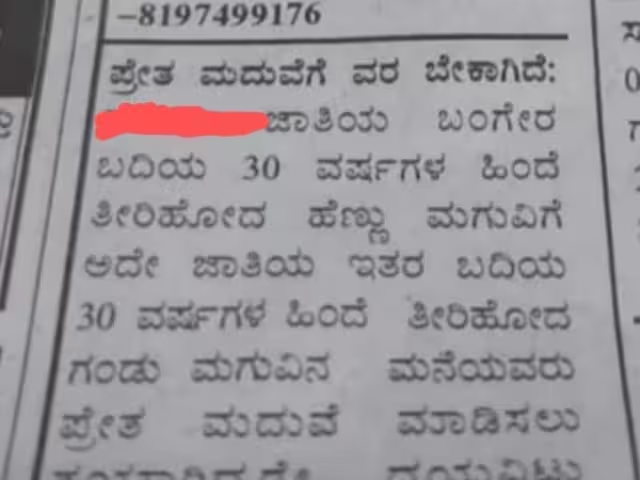Mallikarjun Kharge: “One Nation, One Election Against Basic Structure; High-powered Panel Should Be Dissolved”
The Congress vehemently disagreed with the “undemocratic” notion of having national elections simultaneously on Friday, arguing that it violates both the fundamental principles of the Constitution and the federalism safeguards.

Mallikarjun Kharge, the head of the Congress, also insisted on the idea’s abandonment and the dissolution of the influential committee tasked with its examination.
He asked former president Ram Nath Kovind, who is leading the committee, “not to allow his persona and the office of the former president of India to be abused by the Union government to subvert the constitution and parliamentary democracy in this country” in a letter to the secretary of the committee on one nation, one election.
“The whole concept of ‘One Nation, One Election’ is fiercely opposed by the Indian National Congress. In his letter to the committee’s secretary, Niten Chandra, Kharge said that “it is imperative that the entire idea be abandoned and the high-powered committee dissolved for the sake of maintaining a thriving and robust democracy.”
His letter was a reaction to Chandra’s letter from October 18, in which he requested ideas be made for the committee to examine.
Seeming to have “already made up its mind, seeking a consultation seems to be an eye wash,” the committee member said. “Instead of diverting people’s attention by talking about undemocratic ideas like simultaneous elections, the government, parliament, and ECI should work together to ensure people’s mandate is respected,” Kharge said.
He said that since the opposition parties leading the different state governments that would be impacted by the committee’s recommendations were not given significant participation during the group’s formation, the makeup of the committee is “biased.”
“It is alarming when even ordinary voters believe the committee’s discussions are likely to be a charade since decisions have already been taken, especially when the group is led by none other than the former President of India. The Congress head responded, saying, “Firm opinions in favor of the proposal have already been voiced in public and a dispassionate analysis of pros and cons is not being attempted in a serious and systematic manner.”
He stated that in the last ten years, the house’s confidence in chief ministers has only been lost in cases when a certain party has misused the resources available to it and twisted the anti-defection statute in order to “steal” the mandate of the people.
The idea of holding concurrent elections has no place in a nation that has chosen to implement a parliamentary form of governance. The government’s proposed forms of simultaneous elections, according to Kharge, violate the federalism safeguards included in the Constitution.
He said that the government and this committee ought to have been forthright in acknowledging right away that their proposed actions are incompatible with the fundamental provisions of the Constitution and would need significant revisions in order to be put into effect.
It would be necessary to dissolve a number of legislative assemblies that are just halfway through their mandates in order to have simultaneous elections. The head of Congress said that this would be a betrayal of the voters in those states.
According to him, the prime minister or chief minister serves in that capacity for as long as the house is confident in them, and if that confidence is lost and no other party is able to form a government, the minister will remain in office.
However, Kharge claims that the Niti Aayog report recommends placing the state under President’s Rule until new elections can be scheduled. “This is a mockery of democracy.”
Kharge expressed amusement at the claim that having elections at the same time would save money. “It seems illogical to argue that holding elections costs a great deal of money.”
According to him, polling costs accounted for less than 0.02% of the Union’s overall spending during the previous five years. The speaker expressed confidence that the electorate would be prepared to accept a minor price for free and fair elections that defend democracy, despite the fact that spending for assembly elections may also represent a comparable portion of state budgets.
He said that the 2014 elections cost Rs 3,870 crores, which the committee considers to be a significant amount.
It would be more suitable if the committee, the government, and ECI could increase the transparency of the financing process, particularly with regard to electoral bonds, if they are sincere about the expenses incurred for elections. This would raise voter knowledge and really give the voter more power,” he said.
Additionally, he said that the high level committee should not have referred to the Niti Aayog report, which the committee is depending on despite the fact that it is not a statutory nor constitutional entity.
“This only serves to confirm our worries that the committee appears to have already reached a decision and that requesting consultation would be pointless.”







